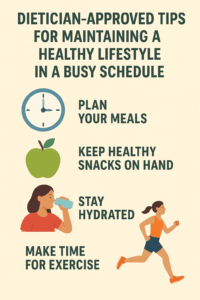
Nutrition is more than just fuel for your body—it’s also the foundation for a healthy mind. At New Soch Rehab and Psychiatrist Center Islamabad, widely regarded as the Best Rehab center in Islamabad, we’ve seen firsthand how dietary choices can profoundly impact mood, mental clarity, and emotional resilience. Science now confirms what many holistic healers have long believed: the mind and body are deeply connected, and what you eat can either boost or harm your mental health.
In this article, we’ll explore the link between nutrition and mental health and share practical ways to harness food as a tool for emotional well-being.
1. The Gut-Brain Connection
Your gut isn’t just for digestion—it’s home to trillions of bacteria known as the gut microbiome. These microbes play a vital role in producing neurotransmitters like serotonin, which regulate mood. A diet rich in probiotics (yogurt, kefir, kimchi) and prebiotics (bananas, onions, garlic) can strengthen gut health, leading to better mental stability.
2. Omega-3 Fatty Acids for Brain Function
Omega-3s, found in fish like salmon and mackerel, are essential for brain development and function. Studies show they may reduce symptoms of depression and anxiety. At New Soch, we integrate omega-3-rich diets into our rehabilitation programs to support mental recovery.
3. The Role of Vitamins and Minerals
Nutrients like vitamin D, magnesium, and B vitamins directly impact mood regulation. Vitamin D, for instance, influences serotonin production, while magnesium helps calm the nervous system. A deficiency can lead to irritability, fatigue, and low mood.
4. Stabilizing Blood Sugar for Emotional Balance
Fluctuating blood sugar levels can trigger mood swings, irritability, and even anxiety. Eating balanced meals with complex carbohydrates, protein, and healthy fats helps maintain steady energy and emotional stability.
5. Antioxidants to Reduce Brain Inflammation
Chronic inflammation is linked to depression and cognitive decline. Foods high in antioxidants—like berries, spinach, and green tea—combat oxidative stress, protecting brain cells and improving mental clarity.
6. Hydration and Mental Clarity
Even mild dehydration can cause fatigue, confusion, and mood changes. Drinking enough water daily supports cognitive function and focus, which is vital for mental health recovery.
7. Avoiding Processed Foods and Sugar
High-sugar diets can spike and crash blood sugar levels, affecting mood regulation. Processed foods often lack nutrients and can increase inflammation, worsening symptoms of anxiety and depression.
8. The Role of Protein in Neurotransmitter Production
Protein provides amino acids, which are the building blocks of neurotransmitters like dopamine and serotonin. Including lean meats, legumes, and eggs in your diet supports emotional well-being.
9. Nutrition in Addiction Recovery
At the Best Rehab center in Islamabad, we recognize that poor nutrition can hinder addiction recovery. Substance abuse often depletes vital nutrients, and replenishing them is key to restoring mental and physical health.
10. Holistic Healing at New Soch Rehab
We don’t just treat symptoms—we focus on the whole person. Our nutrition programs are integrated with therapy, physical activity, and psychiatric care to ensure long-term mental wellness.
Frequently Asked Questions (FAQs)
1. Can diet really improve mental health?
Yes. Numerous studies show that nutrient-rich diets can reduce the risk of depression, anxiety, and cognitive decline.
2. What foods are best for reducing anxiety?
Foods rich in omega-3s, magnesium, and antioxidants—such as salmon, spinach, and berries—help lower anxiety levels.
3. How does the Best Rehab center in Islamabad approach nutrition?
We provide personalized meal plans, education on healthy eating, and nutritional therapy as part of our holistic mental health programs.
4. Can poor diet trigger depression?
Yes. Deficiencies in key nutrients like vitamin D, omega-3s, and B vitamins can increase the risk of depression.
5. How soon can I see results from improving my diet?
Some people notice mood improvements within weeks, but lasting benefits come from consistent, long-term dietary habits.
6. Is nutrition therapy enough for mental health recovery?
Nutrition is a powerful tool, but it works best when combined with therapy, medication (if needed), and lifestyle changes.
Conclusion
Nutrition is a critical pillar of mental health. At New Soch Rehab and Psychiatrist Center Islamabad, we’ve seen countless patients benefit from integrating dietary changes into their recovery plans. As the Best Rehab center in Islamabad, we remain committed to helping individuals achieve mental wellness through a blend of science-backed nutrition and compassionate care.


